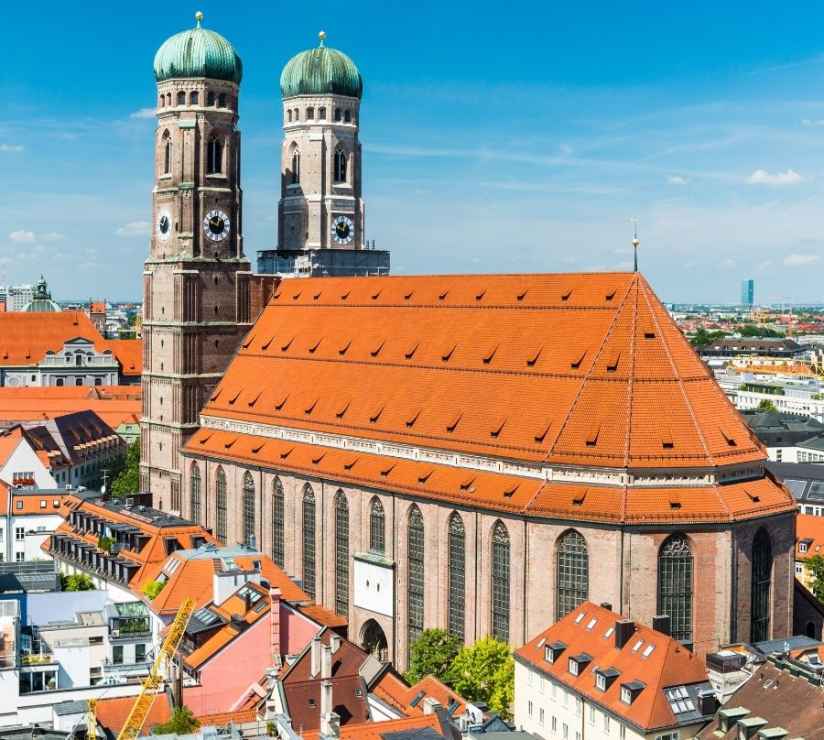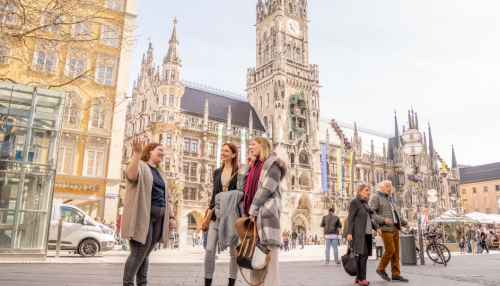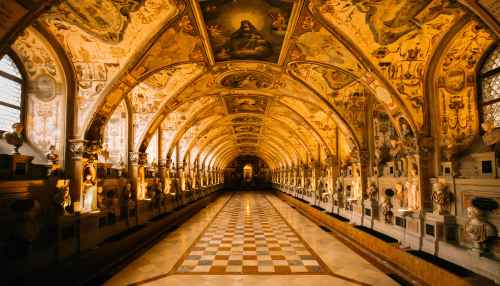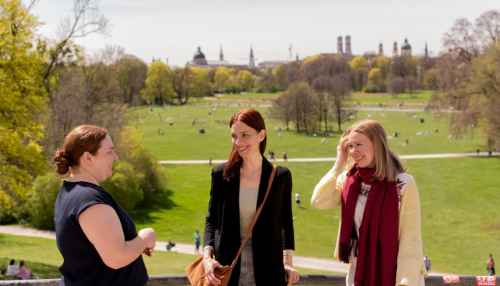Table Of Contents
- The Heart of It All: Marienplatz and Beyond
- Beer Gardens: Where Munich Gets Real
- The Englischer Garten: More Than Just Green Space
- Palaces, Museums, and Royal Pretensions
- Day Trips That Actually Matter
- Olympic Legacy and Modern Munich
- Getting Around and Practical Wisdom
- Summer in Munich: The City at Its Best
- Hidden Gems and Local Secrets
- Beyond the Obvious: Munich's Character
- Timing Your Visit: When Munich Shows Its Best Face
- The Munich Experience: What You Actually Need to Know
Look, I get it. You googled "munich things to do" and landed here, probably expecting another list that starts with Oktoberfest and ends with pretzels. Here's the thing though, Munich isn't a checklist to tick off. It's a city that rewards the curious, punishes the rushed, and definitely doesn't care if you pronounce "Bayern" correctly.
I've lived here my entire life, watched tourists stumble through the old town clutching guidebooks like security blankets, and honestly? Most of them miss the point entirely. Munich isn't just about hitting attractions; it's about understanding a rhythm that's part medieval charm, part modern efficiency, and wholly Bavarian in its refusal to be hurried.
So let's talk about what you actually need to know to experience Munich, not just visit it.
The Heart of It All: Marienplatz and Beyond
Every conversation about Munich starts here, and for good reason. Marienplatz isn't just the main square, it's the city's living room, where locals grab coffee before work and tourists crane their necks at the famous glockenspiel. The new town hall dominates the scene with its Gothic Revival facade, and yes, you'll want to time your visit for the 11 AM show when the mechanical figures dance their medieval ballet.
But here's what the guidebooks won't tell you: the real magic happens after the glockenspiel stops. Stay put for ten minutes. Watch how the central square transforms from tourist theater back to Munich's actual heartbeat. Office workers cutting through, locals meeting friends, the daily flow of a city that's been doing this dance for centuries.
The old town hall, smaller and more weathered than its famous neighbor, sits quietly at the square's edge. It's not much to look at, but it's witnessed eight centuries of Munich's story. That's pretty cool when you think about it.
Don't just photograph and leave. Sit at one of the cafes ringing the square, order a coffee, and people-watch. This is central Munich at its most authentic—a blend of medieval grandeur and contemporary life that somehow makes perfect sense.
Beer Gardens: Where Munich Gets Real
Let's address the elephant in the room: yes, Munich is famous for beer. No, not every beer garden is a tourist trap designed to separate you from your euros while serving you warm Augustiner.
The English Garden's beer gardens are where you'll see Munich at its most relaxed. Chinesischer Turm gets the crowds, but venture deeper into the Englischer Garten and you'll find spots where locals actually go to unwind. The Chinese Tower area might be bustling with tourists, but the beer is still proper, and the atmosphere is genuinely gemütlich.
Augustiner-Bräu, though that's where Munich shows its true colors. No tourist buses, no souvenir stands, just long wooden tables, proper beer, and conversations that stretch into the evening. It's one of Munich's best-kept secrets hiding in plain sight.
Beer halls serve a different purpose entirely. While beer gardens are about relaxation and nature, beer halls are about tradition and community. Hofbräuhaus might be overrun with tour groups, but step into Löwenbräukeller or Spaten-Franziskaner-Bräu and you'll experience the real thing, boisterous, welcoming, and unapologetically Bavarian.
The difference? Beer gardens are where Munich breathes; beer halls are where it sings.
Looking for a private city experience in Munich?
Explore the city with a local who plans a private day just for you; no groups, no scripts.
The Englischer Garten: More Than Just Green Space
Calling the Englischer Garten a park is like calling New York's Central Park a playground. Sure, it's green space, but it's also a cultural phenomenon, a social experiment, and Munich's unofficial summer residence all rolled into one.
The Eisbach wave draws the crowds, surfers riding a river wave in the middle of a city. It's genuinely impressive, though the strong current means this isn't for beginners. Watch from the bridge, marvel at the skill, and remember that this is Munich in a nutshell: unexpected, slightly rebellious, and completely committed to doing things its own way.
But the real Englischer Garten reveals itself when you wander away from the main paths. There are meadows where locals sunbathe (yes, nude sunbathing is completely normal here), quiet stretches along the Isar River, and hidden beer gardens where the beer is cold and the Wi-Fi is nonexistent.
In the warmer months, the banks of the Isar become Munich's unofficial beach. Locals bring bottles of beer, students spread blankets for impromptu picnics, and the whole city seems to exhale. It's nature without the Instagram pose, just Munich being Munich.
The park stretches from the city centre almost to the airport, covering more ground than York's Central Park. You could spend days here and barely scratch the surface, but an afternoon will give you a taste of why locals consider it essential to Munich's soul.
Palaces, Museums, and Royal Pretensions
Munich's royal history isn't subtle, it's plastered across palaces, embedded in museums, and woven into the city's very fabric. The Residenz Palace sits right in central Munich, a complex so sprawling it makes Versailles look modest.
King Ludwig II gets most of the attention (probably because he built fairy-tale castles and died mysteriously), but the Munich Residenz tells the broader story of Bavarian royalty—centuries of wealth, power, and questionable interior design choices. The Treasury alone justifies the entrance fee, assuming you're into that sort of opulence.
Nymphenburg Palace, the summer residence of Bavarian kings, sits on the city's western edge like a baroque statement of intent. The palace is impressive; the gardens are better. They stretch for miles, dotted with smaller palaces, hidden grottos, and enough manicured nature to make Versailles jealous.
The Deutsches Museum occupies an island in the Isar River and contains enough technology, science, and engineering to overwhelm anyone who isn't genuinely interested in how things work. It's massive, comprehensive, and the kind of place where you'll either spend six hours or twenty minutes—there's no middle ground.
For a different perspective on Munich's cultural offerings, the Bavarian State Opera and opera house represent the city's commitment to high culture. Even if opera isn't your thing, the building itself is worth seeing, all red velvet and gold leaf, exactly what you'd expect from 19th-century Munich's attempts at sophistication.
Day Trips That Actually Matter
Munich's location makes it a perfect base for exploring Bavaria, but not every day trip is worth your time. Two standouts, though, genuinely deliver on their reputations.
Neuschwanstein Castle sits two hours south of Munich, perched on a hilltop like something from a Disney movie (which, let's be honest, it basically is). King Ludwig II built it as his personal fantasy retreat, and it's every bit as ridiculous and beautiful as the photos suggest. The guided tour reveals both the king's eccentricity and his genuine taste for beauty, a combination that defines much of Bavaria's appeal.
Dachau Concentration Camp, thirty minutes northwest of Munich, serves as a sobering reminder of Germany's darkest chapter. The memorial and museum are thoughtfully presented, historically accurate, and emotionally challenging in exactly the way they should be. It's not a casual visit, but it's an important one. A necessary counterpoint to Munich's otherwise cheerful disposition.
Both trips can be done in a day, though Neuschwanstein benefits from an early start to avoid the crowds. Dachau, meanwhile, requires emotional preparation more than logistical planning.
What if your day in Munich was planned by someone who knows it — and you?
City Unscripted matches you with a local host who creates a private experience based on your interests, not a set route.
Olympic Legacy and Modern Munich
The 1972 Olympics transformed Munich from a traditional Bavarian city into something more international, more ambitious. Olympic Park, with its distinctive tent-like architecture, still hosts events and offers one of the best views of the whole city from its tower.
The park itself has aged well, the architecture still looks futuristic fifty years later, and the grounds host everything from concerts to beer festivals. It's a reminder that Munich has always been forward-thinking, even when wrapped in traditional Bavarian clothing.
The Allianz Arena, home to Bayern Munich, represents the city's contemporary ambitions. Even if football isn't your passion, the building itself is worth seeing, a glowing, color-changing monument to Munich's love affair with the sport.
These modern additions don't compete with Munich's historical attractions; they complement them. The city has figured out how to be simultaneously ancient and contemporary, traditional and progressive, a balance that most cities struggle to achieve.
Getting Around and Practical Wisdom
Munich's public transport system works with Germanic efficiency, which means it's reliable, comprehensive, and occasionally confusing for newcomers. The U-Bahn and S-Bahn connect most Munich tourist attractions, while trams serve the city centre with old-world charm.
Walking, though, reveals Munich's true character. The old town is compact enough to cover on foot, and the walk from Marienplatz to the English Garden takes you through centuries of architectural evolution. Most locals walk or bike, Munich is flat, bike-friendly, and designed for human-scale exploration.
The city operates on a different rhythm than most European capitals. Shops close early, restaurants serve dinner at reasonable hours, and Sunday remains sacred. It's not lazy; it's intentional, Munich prioritizes quality of life over constant activity.
Summer in Munich: The City at Its Best
Munich in summer transforms into something special. The beer gardens fill with locals and tourists, the Isar River becomes a social hub, and the whole city seems to move outdoors. Events fill the parks, festivals pop up in unexpected places, and the long days stretch late into the evening.
The Isar River, particularly the stretches through the Englischer Garten, becomes Munich's unofficial beach. Locals bring beer, students spread blankets, and families picnic on the banks. It's nature without pretension—just Munich embracing summer with typical Bavarian enthusiasm.
Summer festivals complement the city's permanent attractions. From classical music in the parks to food festivals in the squares, Munich celebrates summer with the same commitment it brings to everything else, thoroughly, authentically, and with plenty of beer.
Tip
We match you with the right host, not just any guide.Want to experience the real Munich with someone who lives there?
A fully private experience, planned and led by a local host who tailors the day to you
Hidden Gems and Local Secrets
Every city has its hidden gem, but Munich's are hiding in plain sight. The Viktualienmarkt isn't exactly secret, it's been feeding Munich for two centuries, but most tourists treat it as a photo opportunity rather than what it actually is: Munich's daily pulse.
Arrive early, when vendors are setting up and locals are shopping for dinner. Buy something, bread, cheese, fruit and eat it standing at one of the small tables scattered throughout the market. This is Munich at its most authentic: unpretentious, welcoming, and focused on the simple pleasure of good food.
The Pinakothek museums (Alte, Neue, and Moderne) house world-class art collections, but they're rarely crowded. Munich's commitment to culture runs deep, but it's not showy about it. These museums contain masterpieces that would draw lines around the block in other cities; here, you can often have entire rooms to yourself.
The university district, particularly around Ludwig-Maximilians-Universität, pulses with student energy. Cafes, bookshops, and bars cater to Munich's intellectual side, less touristy than the city centre, more authentic than the obvious attractions.
Beyond the Obvious: Munich's Character
Munich reveals itself slowly, in layers. The surface is all beer halls and lederhosen, but underneath lies a city that's confident, creative, and genuinely welcoming. It's simultaneously cosmopolitan and provincial, ancient and modern, traditional and progressive.
The locals, contrary to German stereotypes, are remarkably friendly—especially in beer gardens and parks. Strike up a conversation, ask for recommendations, and you'll discover that Munich residents are proud of their city but not precious about it. They're happy to share their favorite spots with visitors who show genuine interest.
Munich's appeal lies not in its individual attractions but in how they fit together. The city makes sense—its layout, its rhythm, its balance of old and new. It's a place that rewards exploration, punishes hurry, and never quite gives up all its secrets.
Timing Your Visit: When Munich Shows Its Best Face
Two days in Munich can hit the highlights, but three days lets you breathe. A week allows you to develop preferences, discover neighborhoods, and understand why locals never seem to want to leave.
Winter brings Christmas markets and cozy beer halls, but summer reveals Munich's true personality. The city comes alive in the warmer months, outdoor dining, river activities, park festivals, and beer gardens in full swing. If you can only visit once, make it summer.
Spring and fall offer smaller crowds and pleasant weather, while summer delivers the full Munich experience, beer gardens buzzing, the Isar flowing with swimmers and surfers, and the whole city celebrating life outdoors.
Ready to plan your perfect day in Munich?
Start your experienceThe Munich Experience: What You Actually Need to Know
So, what should you not miss in Munich? The question misses the point entirely. Munich isn't about checking boxes; it's about understanding a way of life that prioritizes quality over quantity, tradition over novelty, and community over isolation.
Start with the obvious, Marienplatz, the Englischer Garten, a proper beer garden experience. But then slow down. Walk the old town without a destination. Sit by the river with a book and a beer. Join the locals in their daily rhythms rather than rushing through attractions.
Munich rewards the curious, the patient, and the genuinely interested. Approach it like a tourist, and you'll get tourist experiences. Approach it like a temporary local, and you'll discover why this small town grew into one of Europe's most livable cities.
Is Munich worth visiting? That's like asking if good beer is worth drinking or if sitting in a park on a sunny day is worth your time. The answer depends entirely on what you're looking for, but if you want to experience a city that's figured out how to balance tradition with progress, quality with quantity, and work with life, then yes, Munich is absolutely worth your visit.
The city doesn't need your validation, but it's happy to share its secrets with visitors who take the time to understand what makes it special. And that, ultimately, is what Munich things to do really means—not a checklist to complete, but an invitation to participate in one of Europe's most successful experiments in living well.
Ready to explore Munich like a local? Check out our munich tourist attractions guide for more insider recommendations, or discover unique Munich experiences that go beyond the typical tourist trail.
What if your day in Munich was planned by someone who knows it — and you?
City Unscripted matches you with a local host who creates a private experience based on your interests, not a set route.
Want to experience the real Munich with someone who lives there?
A fully private experience, planned and led by a local host who tailors the day to you
Meet Your Munich Hosts
A personalized way to explore Munich’s must-see landmarks beyond the tourist crowds.











